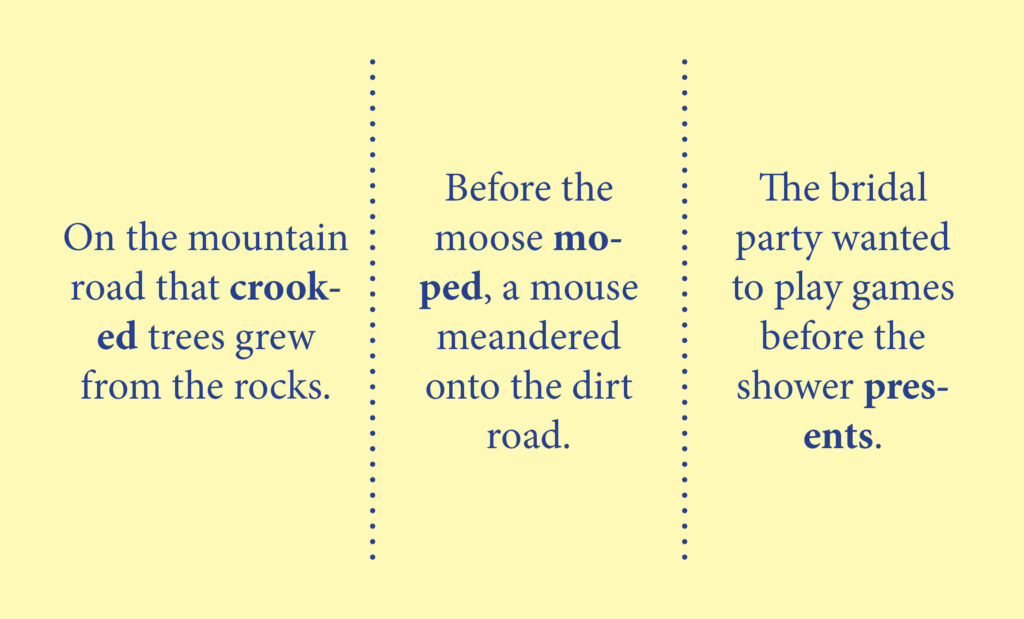
Hyphenation matters in a manuscript. Word processing and design software automatically insert end-of-line word breaks. Sometimes, though, the breaks are wrong, and writers must proofread for incorrect hyphenation in their manuscripts.
Heteronyms, words with the same spellings but different pronunciations and meanings, present a challenge when they break in different spots. The wrong break can result in ambiguity and amusing moments.
Present (Pre-sent/Pres-ent)
The bridal party wanted to play games before the shower presents. The verb form raises the question, what is the animated shower presenting?
Moped (Moped/Mo-ped)
Before the moose moped, a mouse meandered onto the dirt road. In the verb form, a mouse meanders onto the dirt road before the moose decides to feel sorry for itself. In the noun form, a mouse meanders in front of a moped designed for a moose.

Crooked (Crooked/Crook-ed)
On the mountain road that crooked trees grew from the rocks. If the verb becomes an adjective, the mountain road no longer bends and the trees become gnarly and twisted.
Minute (Mi-nute/Min-ute)
Ralph rambled a rhythm at Minute Mic Night. If the break comes after the I, the microphone becomes tiny. If the break comes after the N, the performers have one minute to perform.
Resume (Re-sume/Re-su-me)
After writing resumes, Renee planned to write a riveting report. Renee is either a writer of resumes or she’s waiting for writing time to begin again.
Sake (Sake/Sa-ke)
For Sally’s sake, use fresh fruit such as pineapple. The break or lack of break tells whether Sally has a special recipe for sake or she dislikes or has allergies to other types of fruit.
